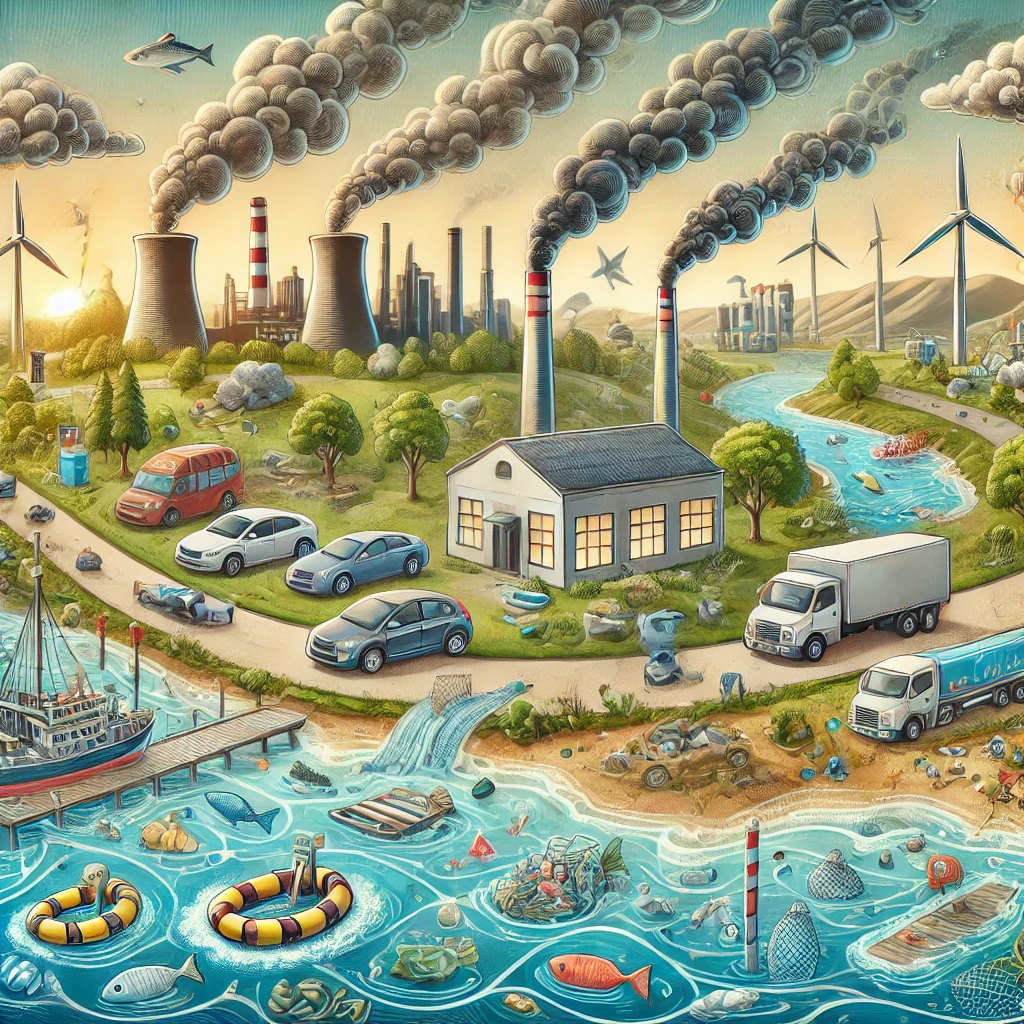 |
How is Pollution Caused?
Pollution is caused by a variety of human activities that release harmful substances into the environment. Here are the main sources of pollution: Industrial Emissions: Factories and power plants emit pollutants into the air, including sulfur dioxide, nitrogen oxides, and particulate matter, contributing to air pollution. Vehicle Exhaust: Cars, trucks, and other vehicles release carbon monoxide, hydrocarbons, and nitrogen oxides, which degrade air quality. Agricultural Activities: The use of pesticides, fertilizers, and livestock waste can lead to water and soil pollution. Waste Disposal: Improper disposal of household and industrial waste, including plastics, metals, and chemicals, contaminates land and water bodies. Oil Spills: Accidental oil spills from ships and offshore drilling rigs can cause severe water pollution. Deforestation: Cutting down trees releases stored carbon dioxide and reduces the Earth’s ability to absorb pollutants. Construction Activities: Dust and debris from construction sites contribute to air and water pollution. Household Chemicals: Products like cleaning agents, paints, and solvents can release toxic substances into the air and water. |
Air Pollution: Caused by emissions from vehicles, industrial processes, and burning fossil fuels.
Water Pollution: Results from dumping waste, oil spills, and agricultural runoff into water bodies.
Land Pollution: Occurs due to improper waste disposal, deforestation, and mining activities.
Environmental Impact:
Health Issues: Pollution can cause respiratory problems, cardiovascular diseases, and other health issues.
Ecosystem Damage: Pollutants can harm wildlife, disrupt ecosystems, and lead to loss of biodiversity.
Climate Change: Greenhouse gases from pollution contribute to global warming and climate change.
#PollutionCauses #EnvironmentalAwareness #StopPollution
Related words: pollution causes, industrial emissions, vehicle exhaust, agricultural pollution, waste disposal, oil spills, deforestation, construction pollution.